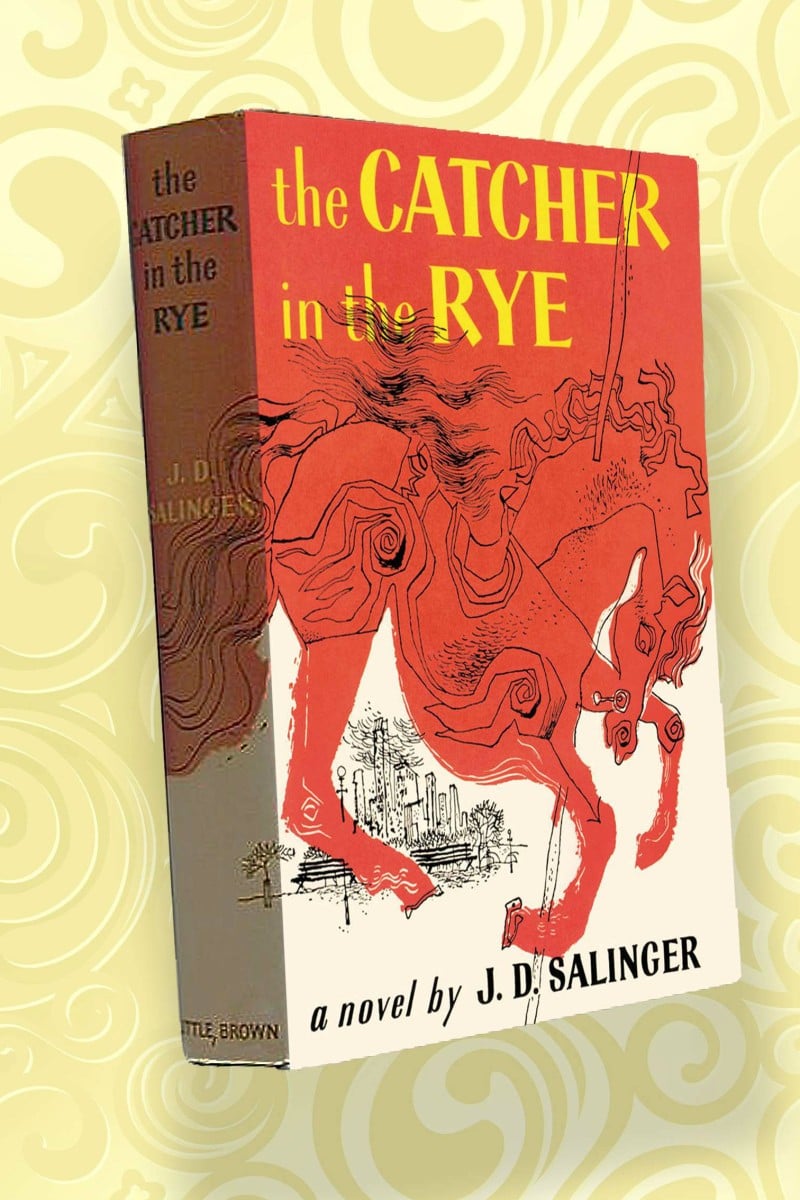
Golden 10: The Catcher in the Rye gives us taste of the real world
Young Post has come up with a list of great books you should read before you head off to university. This week we bring you a coming-of-age story that highlights some of the insecurities faced by many teenagers

What’s it about?
Holden Caulfield is a bit of a rebel – especially by the standards of 1951, when the book was published. In this flashback story, he is 16, and just been expelled from the third school in a row, with only three days to go before the Christmas holiday. He has a big argument with his roommate about Jane, a girl he likes, but that his roommate is taking on a date. Instead of hanging around in the dorm until the end of term, he decides to head to New York City where he plans to stay in a hotel for a couple of days before returning home and telling his parents of his latest expulsion.
What follows is a journey of self-discovery, and of realisation about the adult world. As tough as Holden tries to come across, he is actually quite innocent, and a good kid at heart. He goes to a bar and asks for alcohol, but the bartender wants to see his ID, so he has to stick to Coke. He chats to three older women, and dances with one of them, but they end up abusing his naivety, leaving him to pay their bill. He returns to his hotel room, and hires a sex worker, but ends up not wanting anything to do with her, and paying her US$5, only what he was quoted. She says he owes US$10, so she then tells the man she works for, who beats up Holden and takes the extra US$5 from his wallet. Holden is unable to physically defend himself and feels worthless.
The next day, he calls Sally, an old girlfriend, and arranges to meet her to go to the theatre. But Sally represents so much that Holden hates: she’s superficial and fake. After the play, they have an argument; Sally goes home, and Holden goes to a bar, where he manages to drink alcohol. He gets drunk, then literally throws almost all of the money he has left into a pond. Suddenly overcome by sadness at the prospect of death, he decides to sneak into his family home and see his 10-year-old sister, Phoebe. It is his close relationship with his sister that ultimately convinces him to calm down and decide to stay home.
What’s so great about it?
The Catcher in the Rye is unusual for its voice, especially for its time. It is written in the first person, and accurately captures the tone and vocabulary of a 16-year-old, well-off, rebellious, New York-raised boy. In other words, a pretty average teenager. But what is interesting is that he tries to fit a couple of years’ worth of “growing up” into three days, which is possibly what leads him to the mental home from which he’s telling the story.
The book is a wonderfully honest reflection of the insecurities many people feel in their teens and early 20s, and in that way, offers reassurance that it’s totally normal to be confused.
Why should you read it before you go to university?
The Catcher in the Rye is a “bildungsroman”, or coming-of-age story; albeit a reluctant one, as the protagonist, for all his posturing, is quite scared of adult life, decisions and responsibilities. As you finish secondary school, you’ll be facing a lot of decisions yourself that previously your parents or teachers would have made for you. You will probably empathise with Holden: sometimes it feels like you have to act like you know exactly what adulthood is all about, but inside you’re confused and unsure. And that’s OK. Life is a long learning process, and you will learn to make decisions that are right for you, regardless of other people’s opinions, as you grow up.
Fake lives
One of the major themes in the book is the idea of authenticity versus artificialness. Holden feels that most children are authentic, while most adults are not. He believes a lot of adults compromise their talents and beliefs to please others, something he himself does sometimes, but something he hates. This is an issue that may well come up in real life, as you meet people, and assess whether their attitude to life meshes with yours, or whether you find their outlook “phoney”.
Changing attitudes
Holden hates anything “phoney”, yet he admits that he lies a lot, and there are many examples of his doing so throughout the book. Although he is on the cusp of adulthood, and tries to get away with doing some adult things, he is not ready to be a grown-up, and in fact rather hates the reality that life changes as you get older. He is fiercely protective of Phoebe, going out of his way to do things that he believes will make her happy. He wishes that certain moments and states in life would never change, saying “Certain things should stay the way they are. You ought to be able to stick them in one of those big glass cases and just leave them alone”.
Unusual tale
This is an unusual coming-of-age story in that the protagonist does not accept his maturity, and the author does not give us a happy, or even definite, ending. But the advantage of such an ending is that it gives you the freedom to interpret and examine the story even more closely.
If you like this, you might also want to try...
The Perks of Being a Wallflower by Stephen Chbosky
The Curious Incident of the Dog in the Night-Time by Mark Haddon
The Lost Art of Keeping Secrets by Eva Rice
